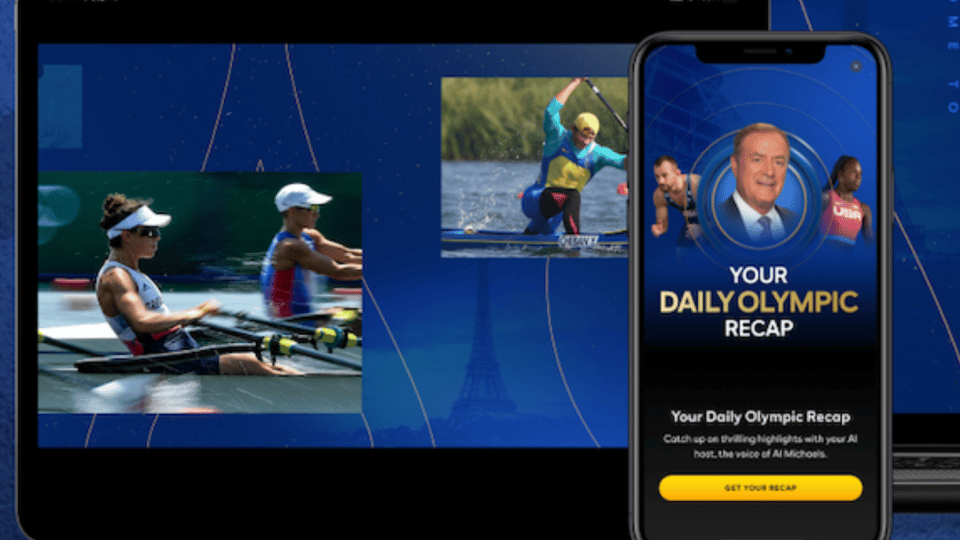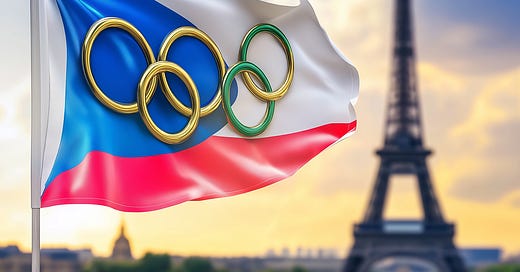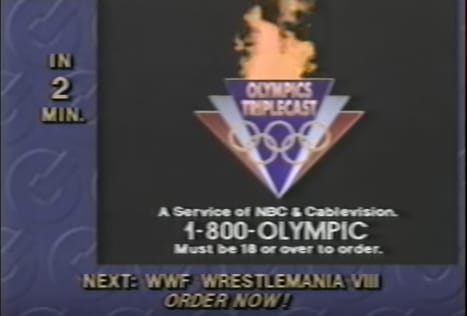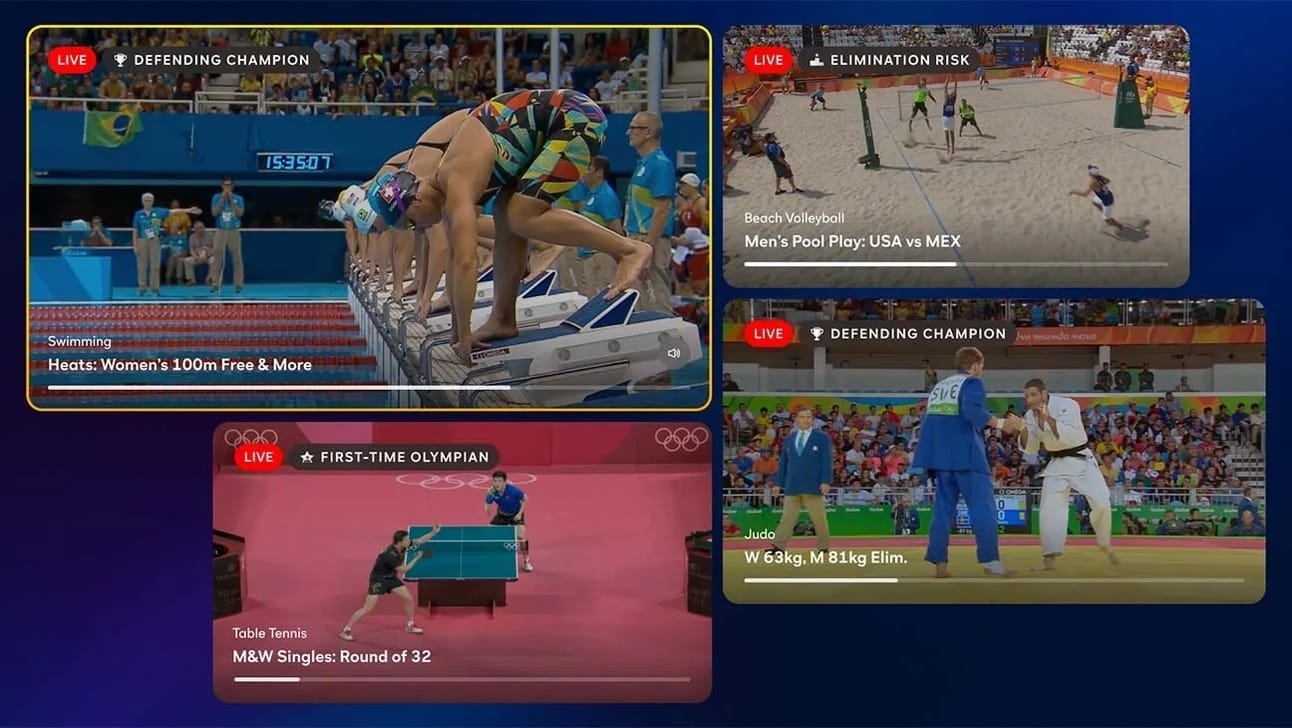There’s a good chance this email finds you sitting on a couch–hopefully just sitting–immersed in some mix of table tennis, synchronized diving, women’s rugby, competitive breakdancing, and Kevin Durant (aka the Slim Reaper) torching Serbia.
In the weeks leading up to the Paris games, I couldn’t summon any real interest. Eight years since we last saw fans cheering on the athletes, my Olympic fever was low-grade at best.
All that changed with the opening ceremonies along the Seine on Friday.
Yes, it was rainy. Yes, the four-hour broadcast occasionally meandered.
We also got headless singers, heavy metal pyrotechnics, a ménage à trois, topped off with LeBron and Coco bearing the flag in the rain like a modern-day Washington crossing the Delaware—all set against Paris putting its best foot forward, complete with a triumphant Celine Dion finale.
I’m in. On y va, bordel!
Are You Not Entertained?
The future of sports starts at the Olympics
The Summer Olympics have always had an outsized impact not only on how we watch sports, but more broadly on broadcast (and now streaming) entertainment.
In 1936, the Olympics in Berlin gave us the first major sporting event broadcast on television capturing, amongst other things, Jesse Owens’ four gold medal wins in front of Hitler at Olympic Stadium.
The 1964 Games in Tokyo had the distinction of being first to use satellite technology to broadcast sports live and introduce the concept of instant replay.
NBC’s coverage of Barcelona ‘92 gave us the Triplecast which, despite the name, was not Catalonia’s version of this week’s opening ceremony three-way.
The pay-per-view Triplecast let you watch almost every Olympic event live across three channels, appropriately dubbed Red, White, and Blue. Perhaps most importantly (at least to me and my friends), it allowed you to watch all of the Dream Team’s games live, with Chick Hearn announcing no less. Shout-out to the MacDonalds, the only family in the neighborhood willing to throw down the $129 to get it.
Triplecast didn’t really take off but just two years later, the NFL and DirecTV borrowed the model to create NFL Sunday Ticket, changing not only the home viewing experience but also playing a key factor in the explosion of NFL popularity in the decades that followed.
All of this, not to mention that ABC and then NBC’s coverage of the Games establishing the template for sports storytelling that draws viewers in and elevates the emotional resonance of sporting events. Netflix’s Drive to Survive and Ryan Reynolds’ Welcome to Wrexham are just two examples of success stories that owe a debt to Olympic broadcasting.
This year, NBC and Peacock will broadcast over 5,000 hours of Olympics coverage between now and August 11.
Following in the tradition of previous Olympics, we will see most of the best innovations in sport featured as part of the coverage, especially on Peacock. We will have all the 4K, 5G, on-demand, and multiview options you can ask for.
There will also be the debut of Gold Zone, an adaptation of the popular NFL RedZone tailor-made for the Olympics, complete with host Scott Hanson.

Channel 6’s Spencer Hall makes the can’t miss pitch for Gold Zone:
We will also see brand new innovations, both in technology and storytelling. There will be the debut of A.I. Michaels, a machine-learning enabled, personalized daily highlights package featuring an automated simulation of broadcast legend Al Michaels. NBC has also lined up podcasting superstar Alex Cooper (Call Her Daddy) to host live viewing parties on Peacock.

Before all of this got going, I started my weekend Friday night at Q2 Stadium here in Austin.
My son and I were in attendance to watch our hometown Austin FC–a team that had been struggling mightily through most of the season thus far–defeat the storied Pumas UNAM of Mexico City 3-2 in the 2024 Leagues Cup, the newly-established tournament between US and Canadian MLS clubs and the best from Mexico’s LigaMX. It’s hard to beat the feeling of watching your team wake up at just the right time to come away with the season-changing victory.
There will never be a replacement for seeing it live. But for the next two weeks, we’ll see how close we can get.
🇲🇳 Mongolia's Olympic Uniforms Are Unbeatable
The uniforms were inspired by the deel, a traditional Mongolian garment. In just twelve weeks, design house Michel & Amazonka took that silhouette, incorporating embroidered vests over long tunics and trousers, and proceeded to win the opening ceremony fashion show.
🥇 What cultural legacies have the Olympic Games left its host cities?
An Olympic diver at Barcelona in 1992. Photo Credit: Bob Martin
The Olympics have earned a budget-busting reputation, with price tags routinely exceeding $10 billion in infrastructure and new facilities.
Even with the influx of tourists, there is almost no hope of recouping those dollars on the Games themselves. But does the investment actually pay off long-term?
ELSEWHERE
🍥 Japan-Style 7-Elevens Are Coming to America — and That Means a Vastly Improved Menu
🌀 AI models collapse when trained on recursively generated data
Tools like ChatGPT rely on mountains of training data from the internet. But as the internet’s data becomes more and more AI-generated, what happens?
Early research indicates it’s a bit like a game of telephone, and the robots aren’t much better than we are at avoiding the descent into gibberish.
🚽 ‘Skibidi Toilet’ Film and TV Franchise in the Works From Michael Bay
This one might have come from one of those collapsed AI models.
🤳 It’s not just the kids. Half of American adults want to be influencers.
A new study suggests 54% of people in the U.S. ages 18 to 60 would quit their jobs if they could make a living as a full-time content creator, including over 60% of people 45-60.
Boomers looked forward to retirement on a golf course, Gen X gets to dance for dollars on TikTok.
But maybe don’t quit your job just yet…
🙄 De-influencing effectively sways 69% of U.S. social media users
A growing number of people say they are turning away from social media platforms for making purchase decisions. Three main reasons cited by survey respondents:
32% of respondents claimed not to trust the social media stars shilling products
28% did not trust the products themselves to be authentic or functional
26% felt that the ceaseless flood of promotions on social media has created an unhealthy atmosphere of overconsumption
Democracy is the theory that the common people know what they want, and deserve to get it good and hard.
H.L. Mencken
Thank you for reading. Now go get yourself to the Gold Zone.
Cheers,
BUNCH

















